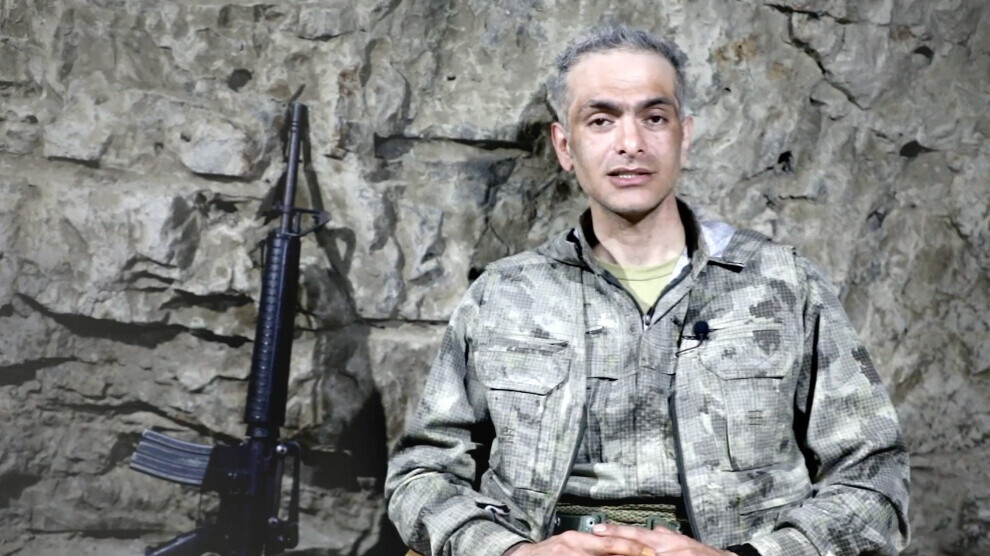‘Resistance in Sida is a dagger stabbed into the heart of the enemy’
“The resistance in Sida is a dagger stabbed into the heart of the enemy,” said HPG guerrilla Felat Hîwa Sine, who had spoken to ANF before his martyrdom in resistance.
“The resistance in Sida is a dagger stabbed into the heart of the enemy,” said HPG guerrilla Felat Hîwa Sine, who had spoken to ANF before his martyrdom in resistance.

The Turkish state’s occupation attacks against the guerrilla-held Medya Defense Zones in southern Kurdistan (northern Iraq) continue unabated. The Turkish army has attacked the guerrilla positions in Zap, Çemço and Sida with all its might and technical means, facing unyielding resistance from the guerrilla forces. One of the guerrillas taking part in this resistance was martyr Felat Hîwa Sine, a guerrilla fighter in the ranks of the People’s Defense Forces (HPG).
In an interview with ANF before his martyrdom, Felat Hîwa Sine commented on the Turkish attacks and guerrilla resistance.
Hîwa Sine stated that the Turkish state was desperate in the face of the guerrilla resistance despite its employment of all its means. “The Turkish state has a hard time both in the field and in the emplacements of the guerrillas. We have fought in a selfless spirit to provide support to our comrades fighting in their emplacements. Our comrades have been subjected to all kinds of attacks but not allowed their will to be broken. It was time to keep our word to our party and leader Apo (Abdullah Öcalan).”
Speaking about his experience in the area of Girê Werxelê, Sine said: “We have witnessed hundreds of war crimes, all of which were committed in front of our eyes. The units partaking in the operation for the occupation of Kurdistan lands were supposedly the best troops of the Turkish state, but they couldn’t confront the resistance of Apoist guerrillas. Even a slightest voice could make them leave their emplacements. This is the very reality of the Turkish state.”
Having experienced a failure, the Turkish army sought to expand its occupation operation, said Sine and continued: “On September 15, they moved to the Martyr Felat tunnels with helicopters, fighter jets and reconnaissance aircraft. Ground troops simultaneously attacked the areas of Martyr Fedakar and Martyr Agir to prevent an intervention by our comrades. The mobile guerrilla units in the camps, and the comrades in the emplacements, however, did professional intervention and did not allow them to enter the battle tunnels easily. When the soldiers attacked, our comrades responded selflessly and inflicted heavy losses on the enemy. The Turkish army left their casualties behind and withdrew. In an attempt to advance on Sida, they attacked the area again, but failed once more.”
Sine continued: “The bodies of soldiers remained on the ground for days and were finally burned under the supervision of their companions. Various chemical weapons were used in the attacks, against which we took measures. Both the Turkish state and the whole world know that employment of chemical weapons constitutes a crime. Despite that, a NATO member state cannot fight the guerrillas. In the ranks of the PKK, we always fight in a self-sacrificing spirit. The guerrillas take success as a basis and do not allow the occupation of Kurdistan, no matter the cost.”